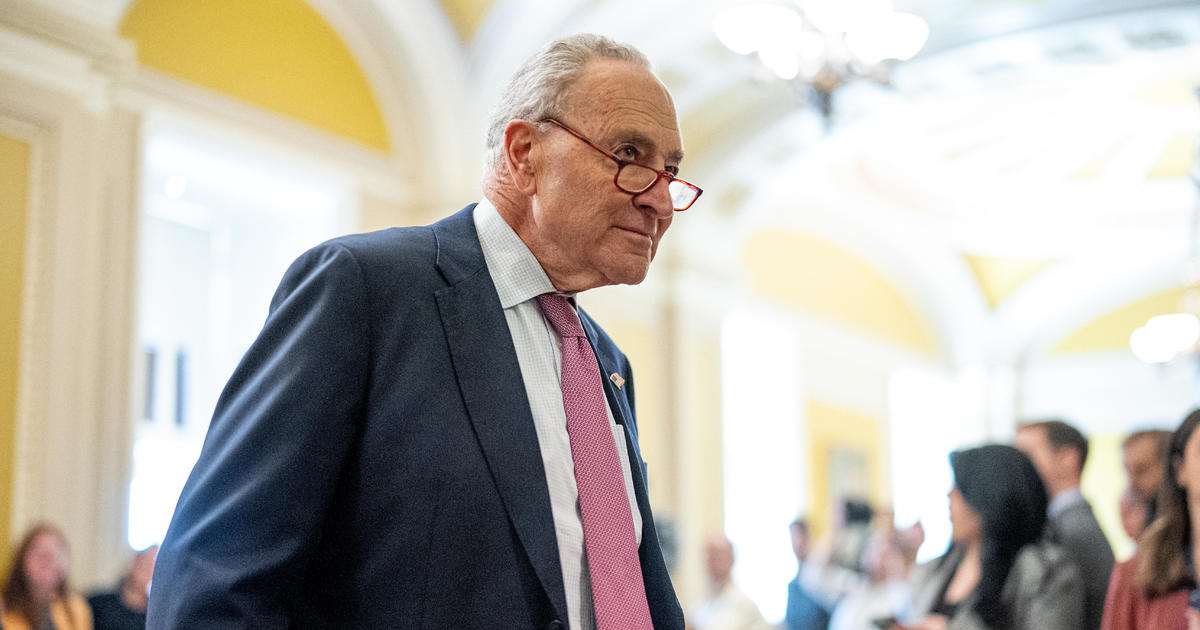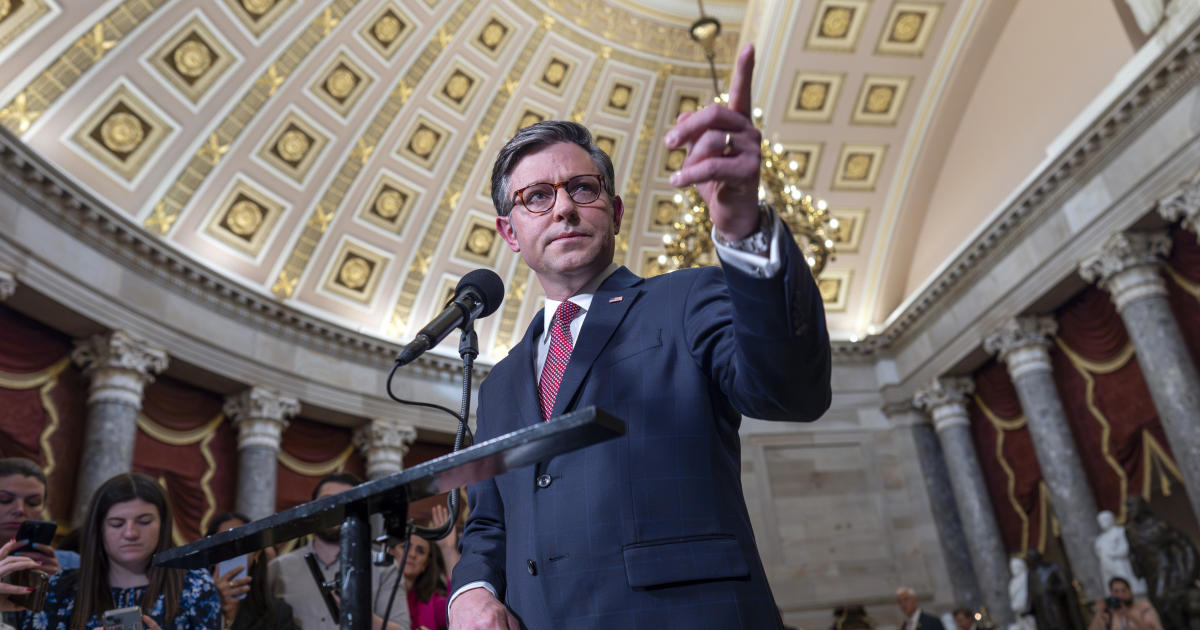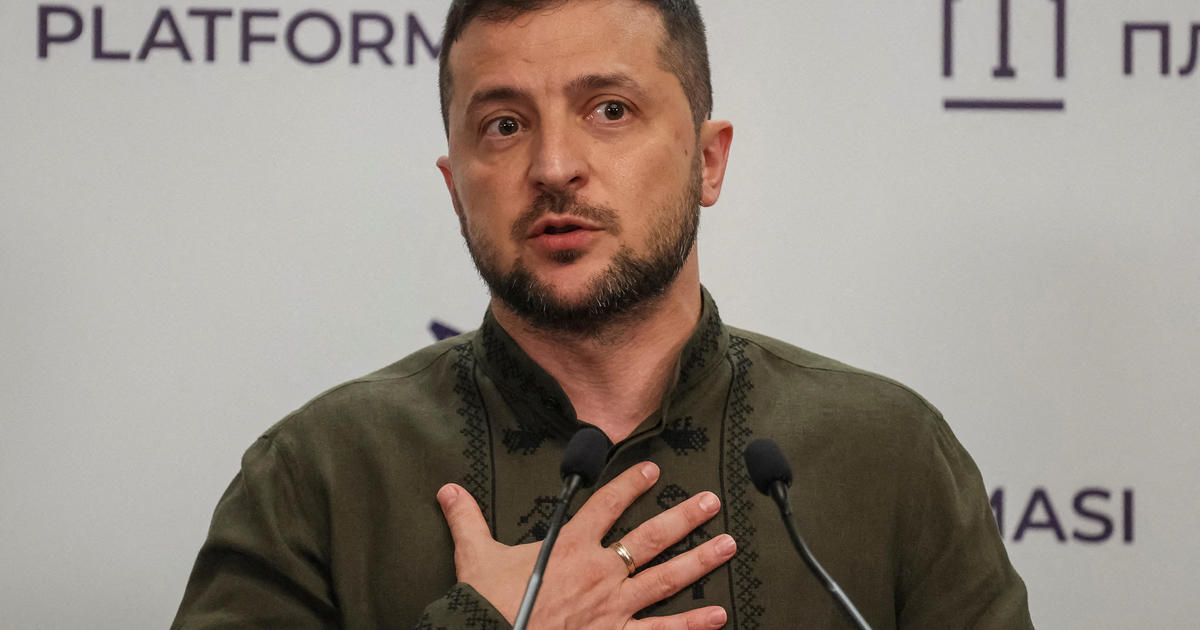White House seeks $10 billion for COVID, $37.7 billion for Ukraine from Congress
Washington — The White House on Tuesday asked Congress to provide another $10 billion to combat COVID-19 and other infectious diseases amid an emergence of new subvariants and expected winter surge in infections, as well as an additional $37.7 billion in support for Ukraine to defend itself from Russia's ongoing aggression.
Shalanda Young, the head of the White House budget office, made the emergency supplemental funding request to House Speaker Nancy Pelosi and called for the priorities to be addressed as part of a bipartisan agreement in the coming weeks.
The White House will also seek more money for disaster response and rebuilding in Florida, Puerto Rico and other communities impacted by extreme weather events. Officials are working to "refine the estimates of funding needs" to address the recent natural disasters, Young wrote in a letter to Pelosi.
"Staying ahead of COVID-19. Supporting Ukraine's fight to defend its sovereignty. Helping Americans who have borne the brunt of natural disasters," she said. "The American people rightly expect their leaders to come together and deliver on these priorities."
According to a breakdown of the request provided by the White House, the $10 billion for funding to fight COVID-19 and other diseases includes $2.5 billion to ensure continued access to vaccines and therapeutics; $5 billion to support the development of next-generation vaccines and therapeutics; and $750 million to support research and treatment for long COVID, the term for cases in which symptoms linger for months or even years. The Biden administration is seeking $750 million of the $10 billion requested to restore smallpox vaccines used for the monkeypox response, and to start procuring and distributing treatment for hepatitis C and pre-exposure prophylaxis to help prevent HIV.
"While COVID-19 is no longer the disruptive force it was when the president took office, we face the emergence of new subvariants in the United States and around the world that have the potential to cause a surge of infections, hospitalizations, and deaths, particularly as we head into the winter months — a time when viruses like COVID-19 spread more quickly," Young wrote.
The White House has attempted on multiple occasions to get more money from Congress to bolster the resources it says are needed to address the pandemic, and is renewing its efforts during the lame-duck session between the midterm elections and the seating of a new Congress.
"Failure to provide more funding would lead to needless infections and deaths across the nation and around the world," Young told Pelosi.
For Ukraine, the White House's breakdown of the $37.7 billion request — which would last through September 2023 — includes $21.7 billion for equipment for Ukraine, to replenish Defense Department stocks and continued military, intelligence and defense support. It also includes $14.5 billion in direct budget support to Ukraine, security assistance, humanitarian assistance and to strengthen global food security, as well as money for the Departments of Energy and Health and Human Services.
"Since the beginning of Putin's war, the United States has rallied the world to support Ukraine," Young said in her letter. "Together, with strong, bipartisan support in the Congress, we have provided significant assistance that has been critical to Ukraine's success on the battlefield — and we cannot let that support run dry."
Young, the director of the Office of Management and Budget, said that roughly three-quarters of the money previously provided by Congress for Ukraine has been disbursed or committed, with more expected to follow by the year's end.
"That is why we are urging the Congress to provide additional appropriations to ensure Ukraine has the funding, weapons, and support it needs to defend itself, and that vulnerable people continue to receive lifesaving aid," she said.
While efforts to provide Ukraine with billions of dollars in assistance since the start of Russia's war in February have earned significant bipartisan support, some Republicans in Congress, as well as at least one incoming GOP senator, have begun to question the need for more funding.
House Minority Leader Kevin McCarthy, the favorite to become speaker with Republicans close to regaining control of the House, told Punchbowl News in October that he believes "people are going to be sitting in a recession and they're not going to write a blank check to Ukraine."
J.D. Vance, who won his race for the Senate in Ohio, said on the campaign trail the U.S. would have to "stop the money spigot to Ukraine eventually," and Rep. Marjorie Taylor Greene suggested earlier this month at a rally in Iowa that "under Republicans, not another penny will go to Ukraine."
Kristin Brown and Gillian Morley contributed to this report.



